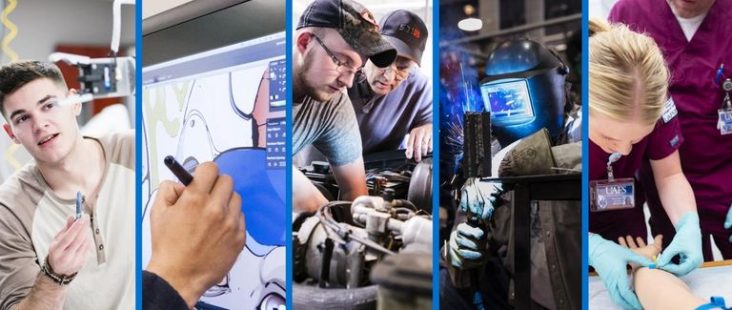Western Arkansas Technical Center looks at rebranding effort to recruit students
by December 5, 2018 8:57 pm 791 views

Photo courtesy of WATC.
The University of Arkansas at Fort Smith is looking to rebrand their 20-year-old Western Arkansas Technical Center (WATC) program.
Dr. Georgia Hale, UAFS provost and vice chancellor for academic affairs, presented a WATC SWOT (strengths, weakness, threats, opportunities and threats) analysis to the UAFS Board of Visitors at the board’s regular meeting Wednesday (Dec. 5).
WATC has served 10,000 students from 20 different school districts over the past 20 years, allowing high school students to earn 20 to 30 hours toward a bachelor’s or associate degree while still in high school, Hale said.
“It is free to students. It allows every (high school) student regardless of their economic status to get college credit by going through the Western Arkansas Technical Center,” Hale said. “It is an on-campus university experience.”
Hale noted the importance of the university experience to these students, stating that half of the students who go through the program are first generation college students.
“If they participate in the WATC program, they are not only gaining college credit, they are coming on to a college campus. They are sitting in the classroom with regular college students and learning by the same standards that our regular college students learn. And that gives them the confidence they need to come onto campus for a baccalaureate program or an associate degree program and know that they can do well because they’ve gotten that start,” Hale said.
However, the WATC program does face many challenges.
Some of the program’s weakness were identified as schedule obstacles for students, lack of industry involvement to align programs with industry needs, and difficulty keeping technology, programs and training current.
Hale said some of the difficulties in the program are a result of funding. Other problems arise because the schedule offered does not necessarily fit the needs of the students wanting to participate in the program.
Currently, students attend WATC classes for half a day and spend the other half at their high school. Students can be in classes from 8 a.m. to noon or 1-5 p.m. This schedule impedes students who wish to be involved in extracurricular activities from enrolling in the program because most extracurricular activities require early morning or late afternoon involvement, Hale said.
“Students asked, why can’t we do a midday program?” Hale said.
The opportunities available also does not support a summer program.
“Some of the students want to get an associate degree while they are still in high school or maximize the amount of hours they can get toward a baccalaureate degree, but they can’t go to summer school because regular WATC funding does not cover it,” Hale said.
Students said they would like the university to offer the prospect of scholarships to allow those students to attend during summer hours. Another proposal was to offer scholarships to students who had gone through the WATC program that they could use to complete their degrees.
The biggest challenge to the program though is perception, Hale said.
Many think of WATC as a technical program, which causes a stigma for many students and parents.
The answer to many of the challenges the program faces is more, better and different marketing, Hale said.
“The students said their counselors push students into AP (advanced placement high school classes) but they don’t push them into WATC,” Hale said, noting that the scheduling of AP classes and WATC often conflict. “There are students in AP that could certainly benefit from being in the WATC program and those in WATC who could do well to take AP classes.”
Board of Visitor member Dr. Sandra Johnson noted that the program might look at dropping “technical” from its name when it comes time for rebranding, and many on the board agreed.
Hale said new branding for the program would hopefully be rolled out by the Fall 2019 semester with a main focus on marketing, scheduling and portfolio review or what the program should offer.
